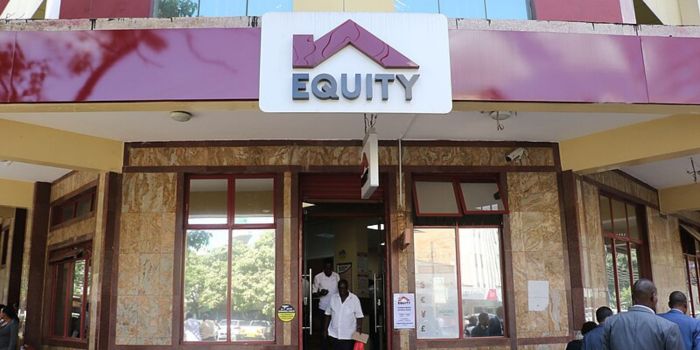19 arrested over loss of Sh290m in Equity Bank debit card fraud

The amount was stolen between April 8 and April 15, 2024, following fraudulent transactions that benefited 551 account holders.
Detectives have arrested 19 suspects in the ongoing probe into Equity Bank's loss of Sh290 million to debit card fraud.
The suspects were rounded up on Tuesday, by detectives from the Banking Fraud Investigation Unit (BFIU) of the Directorate of Criminal Investigation. They are expected to appear in court after being questioned.
More To Read
- Government warns religious extremism shifting to encrypted ‘digital sanctuaries’
- Report warns of widening gap in Africa’s cyber resilience as attacks surge
- Court denies IT expert Ndiang'ui Kinyagia’s plea for passport release amid cybersecurity probe
- Communications Authority of Kenya takes LSK to court over controversial cybercrime law
- AG Dorcas Oduor moves to lift court orders blocking cybercrimes law
- Sixty-five nations sign first UN treaty to fight cybercrime, in milestone for digital cooperation
Detectives are hoping to recover the stolen money even as they cast their nets wider in the hope of making more arrests.
The amount was stolen between April 8 and April 15, 2024, following fraudulent transactions that benefited 551 Equity Bank account holders.
In its letter to the unit, the bank's risk department said it discovered an upsurge of transactions emanating from the bank's Incoming MasterCard GL.
"Preliminary investigations revealed that in the period, Sh179.6 million was paid out from the GL, fraudulently, to the 551 Equity Bank accounts," the letter said. "Additionally, according to investigations, Sh63 million was sent to Safaricom M-Pesa and Sh39 million to 11 commercial banks."
The bank and a leading telecom company are helping the police trace the movement of the funds.
Meanwhile, Equity has obtained a lien of Sh60.7 million in the 551 accounts.
The incident is one of many card fraud cases in the country. According to the Central Bank, bank card fraud occurs in several ways, including phishing, which is when fraudsters send an email or text message that appears to come from one's bank or a reputable financial institution.
"They use various tactics to get you to share confidential information such as your PIN, account number, login details and passwords," the CBK notes on its website.
"For instance, they may state that your account has an issue and that you need to update or verify the information through a website link or mobile phone device. Thereafter, they use the details to steal money from your account."
Fraud may also occur when card skimmers illegally copy information from the magnetic strip of a credit or ATM card. They then create copies of the card and make charges to one's account.
In other instances, thieves use misplaced or stolen bank cards to make unauthorised purchases before the owners report them missing, the CBK adds.
According to data from the BFID, Kenyan banks lost Sh1. 5 billion (approximately US $17.64 million) over the last year, with only a third being recovered by investigators.
Last week, the National Assembly assented to the Computer Misuse and Cybercrime (Critical Information Infrastructure and Cybercrime Management) Regulations, 2024, giving security agencies more power to regulate cyberspace activities to curb fraud.
The regulations enhance protection measures for critical economic sectors such as telecoms, banking, transport and energy.
They stipulate how to deal with issues including scams, identity theft, hacking and internet fraud, and also address the cybercrime capacity and capability building for the public, businesses, government institutions, and private entities, to enhance their cybersecurity preparedness and prioritise cybersecurity.
Top Stories Today















































